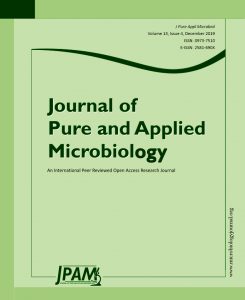Monitoring the distribution and resistance of antibiotics to enterococcal species is critical aspect to controlling and preventing enterococcal infection. The aim of the present study is to screen the antimicrobial resistance genes within Enterococcus species isolates that collected from Taif governorate, Saudi Arabia. Out of 134 clinical samples, nineteen enterococcal isolates were identified using 16S rRNA sequence gene. Phylogenetic tree analysis using 16S rRNA gene sequence of the 19 strains divided them into 15 strains as E. faecalis and 4 strains as E. faecium. In addition, these the species of these isolates were recognized using VITEK-2 COMPACT system. The PCR technique was used to screen the multi-drug resistant genes within enterococcal isolates. The KpsII, tetL, aac(6)-Ie-aph(2)-Ia, vanA and Erm(B) genes were found in all strains. The distribute of resistance against antibiotic drugs were differs greatly between the two species, a considerably higher prevalence of resistance to penicillin, gentamicin, cefoxitin, cefotaxime, clindamycin, erthromycin and fusidic acid was identified in E. faecalis than in E. faecium, while greater spread was detected to resist to Trim/Sulf and tetracycline in E. faecalis. Finally, rep-PCR markers investigated genomic diversity of Enterococcus strains. Results of rep-PCR markers generated 142 distinct loci; 96 were polymorphic (67.6%) and 46 were monomorphic (32.4%). Number of loci for individual rep-PCR primers ranged from 9 for rep-08 to 18 for rep-02.
Enterococcus spp.; antimicrobial resistance; Antibiotic resistance genes, Saudi Arabia.
© The Author(s) 2019. Open Access. This article is distributed under the terms of the Creative Commons Attribution 4.0 International License which permits unrestricted use, sharing, distribution, and reproduction in any medium, provided you give appropriate credit to the original author(s) and the source, provide a link to the Creative Commons license, and indicate if changes were made.


